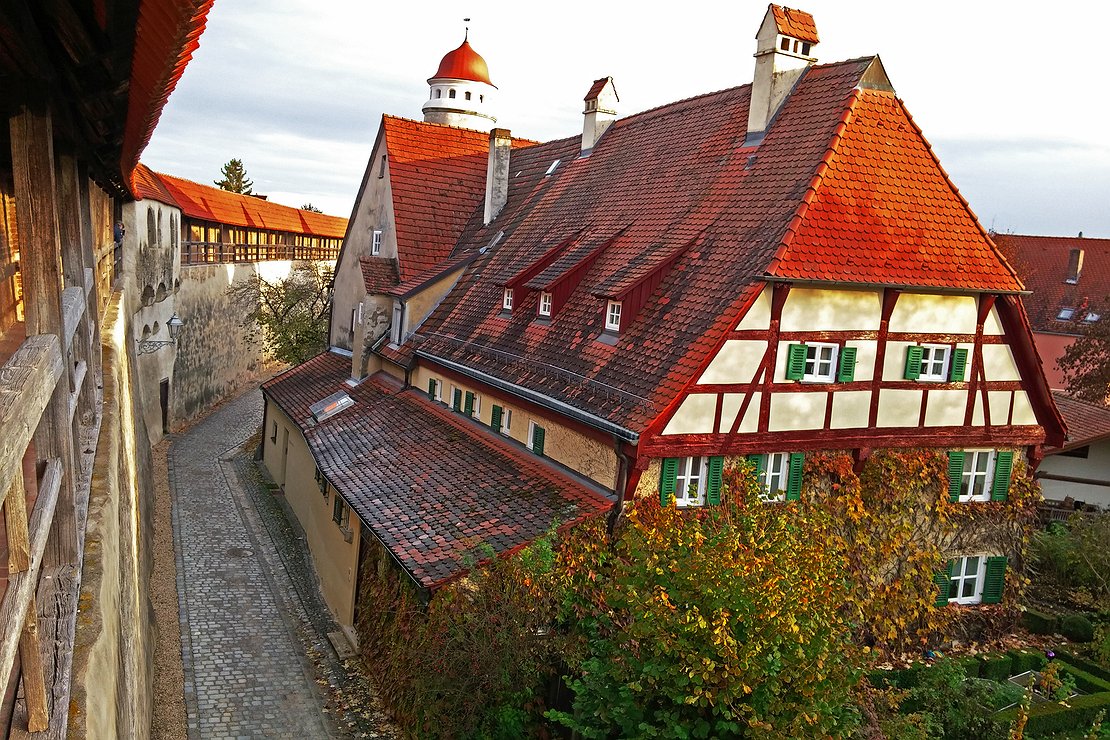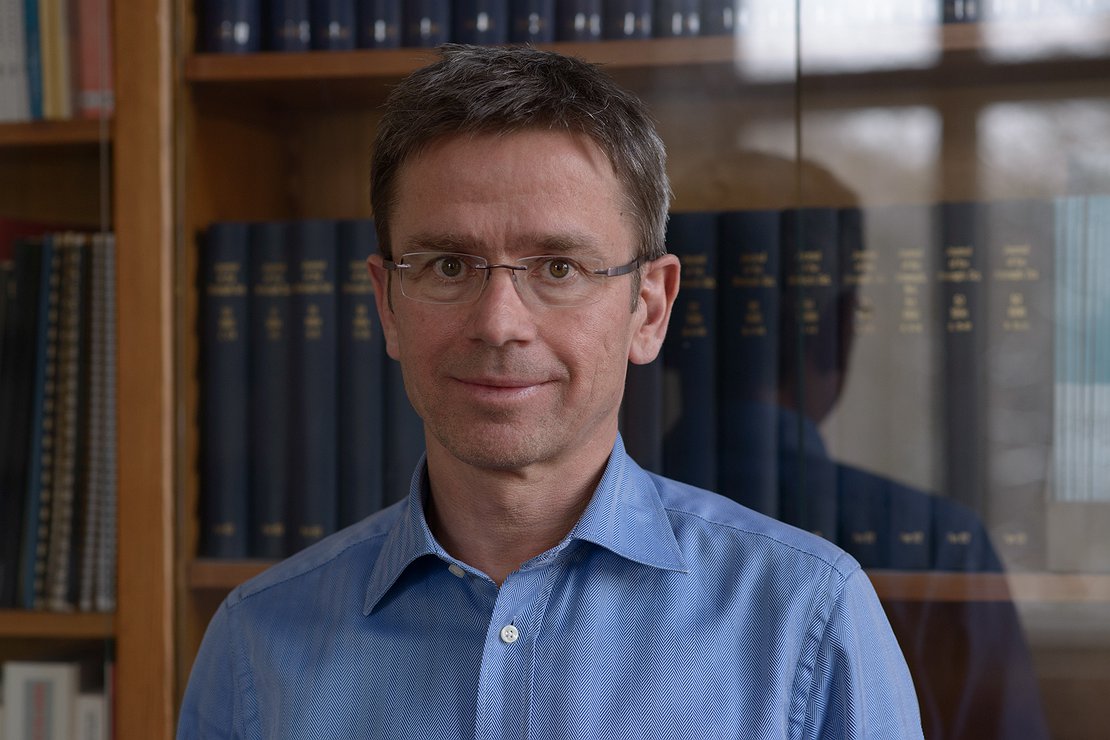
What we can be really proud of:The German Tradition of Freedom
The historically largely uprooted Germans have become accustomed to turning their gaze away from the history of their country. Didn't it lead them to the catastrophe of 1945? Is there not an unbroken line from Charlemagne through Martin Luther to Frederick the Great and Bismarck to Adolf Hitler, as National Socialist historical propaganda has claimed? Hasn't German history even ended with National Socialism, and shouldn’t fundamental political concepts like ‘nation,’ ‘people’ and ‘identity’ seem suspicious to a German?
There is no doubt that, at least in recent history since the emergence of the territorial states, particularly Prussia, there has been a tendency toward state dependence, toward being submissive, toward pure obedience – also to freedom – which has fostered the emergence of totalitarianism. Germans have also made a not inconsiderable contribution to the theoretical deification of the absolute state. Here the power state, just as the welfare state today, found its theoretical justification and idealization. Hegel, Rodbertus, Marx, Lassalle, Adolph Wagner, Treitschke, Gustav Schmoller (‘state socialism’) are only a few names from this questionable tradition. The modern welfare state is a child of Germany, for sure.
Meanwhile, there is also another line of tradition. From its very beginnings, German history can also be described, both institutionally and spiritually, as a history of freedom. ‘Freedom’ can be understood as individual freedom of action and property rights, as collective or political freedom (participation in political decisions) and finally as external self-determination under international law.
Even the classical liberals of the 19th century admired the ‘ancient German freedom:’ the Germanic peasants with strong property rights and the right to vote, and resist against, the freely elected political leadership. In late Roman times the Germanic conquerors were often welcomed as ‘liberators’ from an intellectually and economically totalitarian degenerated bureaucracy. Arminius preserved the ‘external freedom’ of some Germanic peoples and prevented the Roman tax bureaucracy from expanding as far as the river Elbe. He was killed by his relatives as he sought to rule as a king.
A few centuries later, in the absence of a central bureaucracy and a monetary economy, the feudal system with economically independent, self-equipping armored knights emerged, dominating large areas: a system of extreme decentralization of power, not based on equal rights, but nevertheless favorable to freedom.
The attempts at centralization by the German emperors and kings such as Charlemagne or Otto I, or later the Salians and Staufers failed – was this just an accident? Germans are particularly proud, and rightly so, of the free urban culture of the Middle Ages, the 3,000 city republics – in some cases more likely to be villages – with a population of citizens capable of defending themselves and possessing great self-confidence, which finds its expression to this day in the enormous churches, town halls, warehouses, city walls and towers. Even without a central bureaucracy, the city alliances – especially the German Hanseatic League – combined forces when they were threatened (by emerging territorial states). Their struggle for freedom against princes and bishops, united by sworn brotherhoods, is impressive. The only previous, similarly brilliant urban culture had been that of ancient Greece. Alpine and marsh farmers also joined forces in confederations – Switzerland still exists today, while the ‘Nordic Switzerland’ (the peasant republic of Dithmarschen on the North Sea coast) was defeated by the Danish territorial power in 1559.
A national republic could easily have developed on the basis of allied cities and peasant confederations. The Peasant War of 1525, with the cruel defeat of the peasants, ended these hopes.
A dubious role in this was played by Martin Luther, who was not a libertarian but a religious fundamentalist. Luther undoubtedly only indirectly promoted freedom by breaking the monopoly of faith of the Catholic Church and encouraging, albeit unintentionally, the individualization of faith.
The German ‘Kleinstaaterei’ (the proliferation of small states), which emerged out of the feudal fragmentation of power, is regarded by many as an original German political achievement. Before the French Revolution, there were about 1,800 independent political entities: not only the well-known larger territorial states, but also small knightly dominions, abbeys and monasteries, even individual ‘imperial villages’. Although not based on libertarian equality of rights, they were nevertheless favorable to freedom. The competition between the many centers of power created options for freedom: above all the exit option (“city air makes you free,” and similar spaces of freedom were also created by the internal and eastward colonisation of the Middle Ages: “forest air makes you free”).
The small-state world of the 18th and 19th centuries offered many opportunities for economic and political experimentation and promoted the dissemination of art, education and knowledge, despite the lack of free trade: you only have to think of Weimar and the many other courts. Benjamin Constant and Goethe or Justus Möser remarked positively about the cultural advantages of small-state pluralism. Even the much-maligned Prussia has its significant traditions of freedom, such as the establishment of an administrative court, the beginnings of the rule of law, or later the liberal revolutionary bureaucracy under Stein and Hardenberg. Manchester liberalism, which was much scorned in Germany, despite its triumphs until 1878, brought about the enormous increase and economic rise of the ordinary man and woman. Wherever ‘capitalism’ went, it overcame poverty. And, in any case, Germany too had a comprehensive classical liberal bourgeois movement with personalities such as Ludwig Bamberger, Eduard Lasker, and Eugen Richter, even though it was initially defeated politically in 1848. Workers, too, initially voted predominantly liberal. In federalism and localism, which were still strong until 1918, the small state and local self-government continue to have an effect to this day.
Even in the 20th century, Germans were not simply willing flocks of sheep that could be led into war and destruction. The resistance movement in the Third Reich was more comprehensive than most people know: Four million Germans went through the camps, many thousands were murdered, just as many, or more, fled abroad. There were 40 attempts to kill the tyrant. The actions of the ‘White Rose’ and especially the well- planned attempted coup d'état of July 20, 1944 are well known today.
Then there was the East German popular uprising of 17 June 1953, which was crushed by Soviet tanks, and finally the courageous ‘peaceful revolution’ in the GDR in 1989. Tens, even hundreds, of thousands of people took to the streets or went on strike, risking their lives.
Not to forget – after 1948 – the ‘Silver Age of German Liberalism,’ especially the achievement and charisma of Ludwig Erhard, a true social revolutionary with the ambition to replace the welfare state with individual property citizenship, even if he was defeated with regard to this ambition. We still feed economically on his act of liberation in May 1948.
A separate chapter is the intellectual-historical contribution of the Germans to thoughts and about freedom. With Althusius and Pufendorf, but also above all Kant, and finally the poets and thinkers of German classicism – such as Schiller's, Goethe's and Wilhelm von Humboldt's contributions to personality theory, Lessing's dramas and Lichtenberg's aphorisms – the Germans made enduring contributions. It is often forgotten what the German-language theory of order, including the Austrian school around Menger, Mises, Hayek and Wilhelm Röpke, achieved in the 20th century to underpin the theory of freedom institutionally – these reflections on things ‘beyond supply and demand.’
If some Germans, alienated as they are from their own history, were to realize all this, they might perhaps find their way back to a friendly loyalty to their own nation, to a libertarian patriotism that does no harm to anyone, but protects many against uprooting and disorientation – to the “sense of well-being that roots give a tree,” of which Nietzsche spoke.
Translated from eigentümlich frei, where the original article was published on November 4, 2018.




